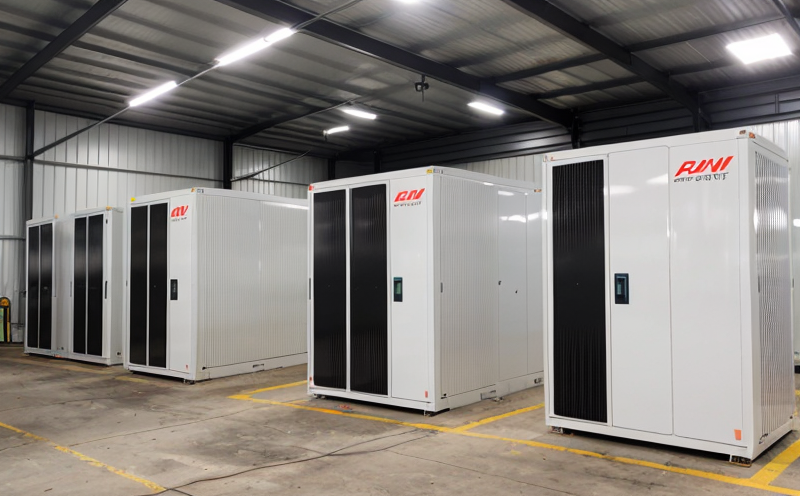Battery & Energy Storage System Testing
The battery and energy storage system (ESS) testing services we offer are designed to ensure the safety, performance, and reliability of batteries used in a wide range of applications. These systems play an increasingly critical role in renewable energy production, grid stability, electric vehicle charging, and backup power solutions. As the demand for sustainable energy grows, so does the need for stringent testing that meets international standards.
Our comprehensive testing services cover various types of batteries including lithium-ion (Li-ion), lead-acid, nickel-metal hydride (NiMH), and flow batteries, among others. For ESS, we evaluate the system as a whole, focusing on its integration with renewable energy sources such as solar PV arrays or wind turbines.
The testing process involves rigorous examination of both individual components and complete systems to ensure they meet regulatory requirements and industry standards. This includes evaluating safety features like over-current protection, thermal management, and fire suppression capabilities. Performance metrics such as cycle life, power density, energy efficiency, and charge/discharge rates are also critical parameters.
In addition to functional testing, we conduct environmental stress tests to simulate real-world conditions under which these systems will operate. This includes high/low temperature cycling, humidity resistance, vibration endurance, and altitude testing. Our laboratory adheres to strict quality control measures, ensuring accurate results that can be relied upon by our clients.
Our team of experts uses advanced instrumentation tailored specifically for battery and ESS testing. We employ sophisticated equipment capable of monitoring minute changes in voltage, current, temperature, and other key variables during operation. Post-test analysis provides detailed reports highlighting strengths and areas requiring improvement. Compliance with relevant international standards such as IEC 62619, UL 1973, EN 50636 is guaranteed.
We work closely with clients from the energy sector to provide customized solutions that address unique challenges faced within their specific industry verticals. From initial concept development through final validation, our team ensures every aspect of battery and ESS design adheres strictly to best practices.
Applied Standards
| Standard | Description |
|---|---|
| IEC 62619:2014 | Battery management systems for portable electronic equipment |
| UL 1973-2018 | Safety requirements for stationary energy storage systems (ESS) |
| EN 50636:2019 | Performance, safety and environmental characteristics of batteries in ESS applications |
| ASTM G173-2008 | Determination of the temperature range for which a photovoltaic module maintains specified electrical performance |
Environmental and Sustainability Contributions
- Reduces waste by ensuring efficient use of materials during manufacturing processes.
- Promotes recycling through accurate assessment of battery components at end-of-life stages.
- Supports the transition towards cleaner energy sources by validating ESS performance in renewable integration scenarios.
Competitive Advantage and Market Impact
- Ensures compliance with stringent regulatory requirements, providing peace of mind for manufacturers.
- Facilitates early identification of potential issues before they become costly problems in production or deployment phases.
- Positions clients as leaders in their respective markets by delivering reliable and efficient energy storage solutions.





